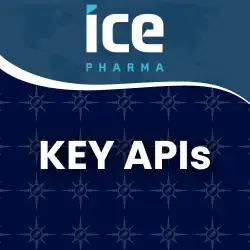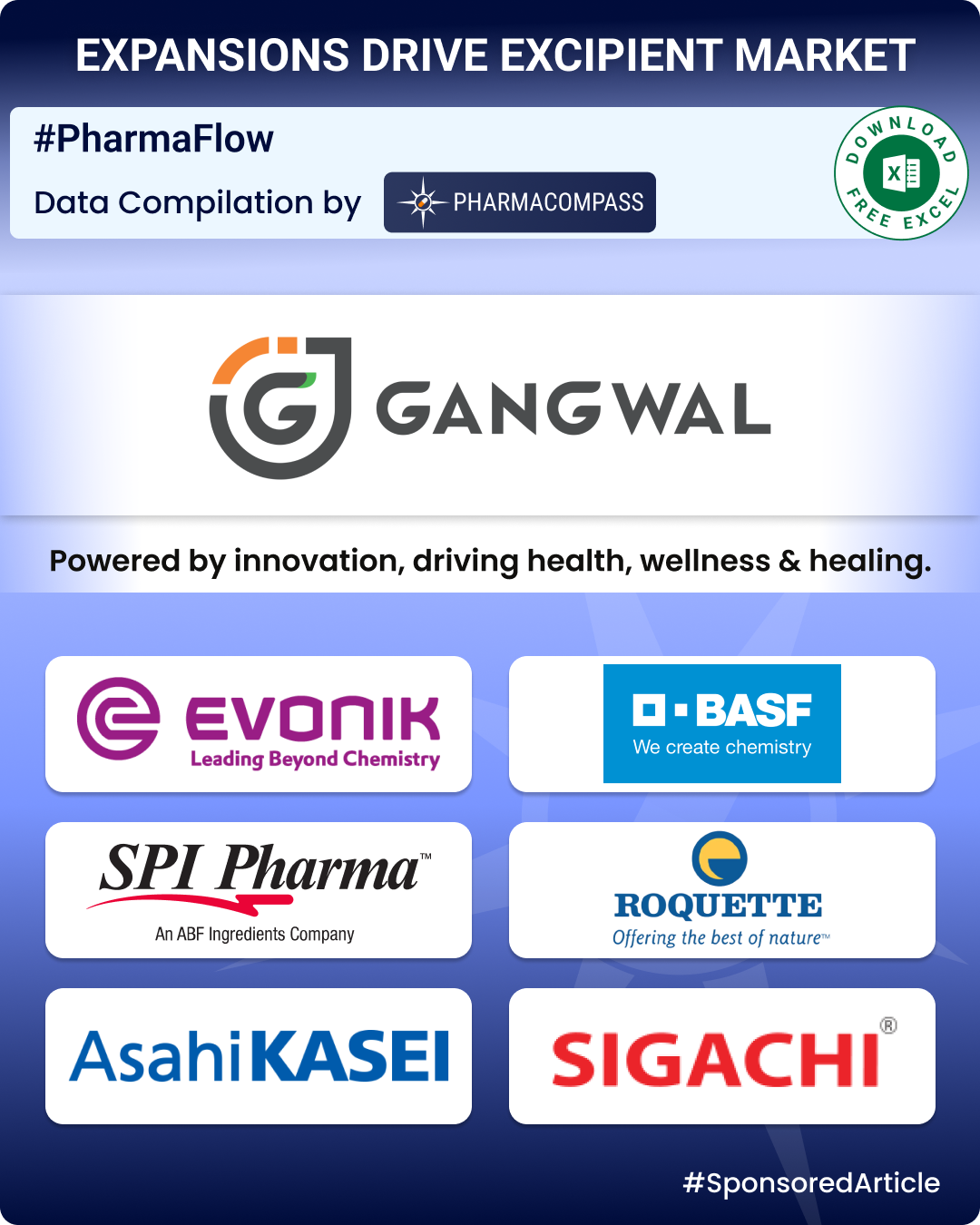09 Dec 2025
// PRESS RELEASE
25 Sep 2025
// PRESS RELEASE
19 Sep 2025
// PRESS RELEASE
 KEY PRODUCTS
KEY PRODUCTS
ICE Pharma offers a unique range of bile acid products and best-in-class services for the pharmaceutical industry.
About
Industry Trade Show
Not Confirmed
24-26 February, 2026
BIO Partnering at JPMBIO Partnering at JPM
Industry Trade Show
Not Confirmed
12-15 January, 2026
Biotech ShowcaseBiotech Showcase
Industry Trade Show
Not Confirmed
12-14 January, 2026
CONTACT DETAILS






Events
Webinars & Exhibitions
Industry Trade Show
Not Confirmed
24-26 February, 2026
BIO Partnering at JPMBIO Partnering at JPM
Industry Trade Show
Not Confirmed
12-15 January, 2026
Biotech ShowcaseBiotech Showcase
Industry Trade Show
Not Confirmed
12-14 January, 2026
https://www.pharmacompass.com/speak-pharma/ice-is-pioneering-sustainability-innovation-in-bile-acid-research-for-neurodegenerative-diseases
CORPORATE CONTENT #SupplierSpotlight
https://www.pharmacompass.com/radio-compass-blog/excipient-market-overview-evonik-launches-high-purity-excipients-india-mandates-disclosures-from-march-2026
https://www.pharmacompass.com/radio-compass-blog/cdmo-activity-tracker-veranova-chemexpress-invest-in-adc-facilities-cohance-to-set-up-oligonucleotide-facility-in-india
https://www.pharmacompass.com/radio-compass-blog/cdmo-activity-tracker-veranova-carbogen-lead-adc-investments-axplora-polfa-tarchomin-famar-expand-european-footprint
https://www.pharmacompass.com/radio-compass-blog/excipient-market-overview-roquette-announces-restructuring-post-iff-pharma-buyout-who-fda-advance-regulatory-frameworks
https://www.pharmacompass.com/radio-compass-blog/cdmo-activity-tracker-bora-polpharma-make-acquisitions-evonik-euroapi-porton-announce-technological-expansions
https://www.pharmacompass.com/radio-compass-blog/excipient-market-overview-roquette-seqens-evonik-make-strategic-moves-new-guidelines-deal-with-contamination
https://www.pharmacompass.com/radio-compass-blog/cdmo-activity-tracker-novo-s-parent-buys-catalent-for-us-16-5-bn-fujifilm-merck-kgaa-axplora-lonza-expand-capabilities

09 Dec 2025
// PRESS RELEASE
https://www.icepharma.com/news-articles/new-zealand-pharmaceuticals-achieves-recertification-for-iso-14001-iso-45001-iso-14064-1-and-iso-50001/

25 Sep 2025
// PRESS RELEASE
https://www.icepharma.com/news-articles/bile-acids-a-promising-class-of-functional-excipients-in-modern-drug-delivery/

19 Sep 2025
// PRESS RELEASE
https://www.icepharma.com/news-articles/basaluzzo-site-renews-gmp-certification-from-aifa-until-2028/

12 Sep 2025
// PRESS RELEASE
https://www.icepharma.com/news-articles/new-zealand-pharmaceuticals-achieves-recertification-for-iso-14001-iso-45001-iso-14064-1-and-iso-50001/

09 Jul 2025
// PRESS RELEASE
https://www.icepharma.com/news-articles/ice-pharma-inaugurates-new-f-block-at-raichem-india-boosting-udca-production-from-chicken-bile/

16 May 2025
// PRESS RELEASE
https://www.icepharma.com/news-articles/new-state-of-the-art-warehouse-inaugurated-at-abc-farmaceutici-site-of-ivrea/
Services
API Manufacturing
Drug Product Manufacturing
API & Drug Product Development
Excipients
Excipients by Ingredients
Excipients By applications
Inspections and registrations
ABOUT THIS PAGE
ICE Pharma is a supplier offers 12 products (APIs, Excipients or Intermediates).
Find a price of Ursodeoxycholic Acid bulk with DMF, CEP, JDMF offered by ICE Pharma
Find a price of Chenodeoxycholic Acid bulk with DMF, CEP offered by ICE Pharma
Find a price of Cholic Acid bulk with CEP, JDMF offered by ICE Pharma
Find a price of Ursodeoxycholic Acid bulk with CEP offered by ICE Pharma
Find a price of Cholic Acid bulk with CEP offered by ICE Pharma
Find a price of Deoxycholic Acid bulk with CEP offered by ICE Pharma
Find a price of Tauroursodeoxycholic Acid bulk with DMF offered by ICE Pharma
Find a price of Dehydrocholic Acid bulk offered by ICE Pharma
Find a price of Doxofylline bulk offered by ICE Pharma
Find a price of Inosine Pranobex bulk offered by ICE Pharma
Find a price of N-Acetyl-D-neuraminate bulk offered by ICE Pharma
Find a price of Taurine bulk offered by ICE Pharma


 ICE Pharma
ICE Pharma




